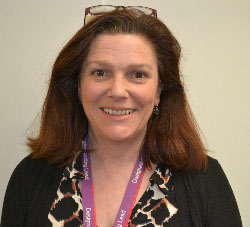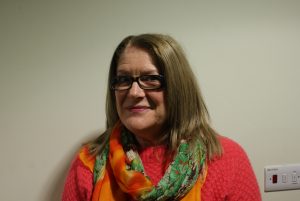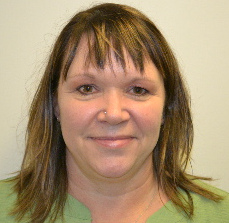Our Special Educational Needs Co-ordinator is;
Mrs Karen Duggan, 0116 2872487

The SEND Governor is;
Mrs Paull, 0116 2872487

Our school Family Support Worker is;
Miss Deborah Hynes, 0116 2872487

This SEND information report is part of the Leicester Local Offer for pupils with Special Educational Needs and Disabilities. The Local Authority in collaboration with Leicester City schools has produced the Local Offer. It is a legal duty for all governing bodies of maintained schools, nurseries and academies to publish information on the website about the policy for pupils with SEND
At Braunstone Frith Primary Academy we are committed to working together with children, staff and parents in a partnership to enable all children to realise their potential.
What does ‘special educational needs and disabilities’ (SEND) mean?
Some children find it more difficult to learn and make progress. Children can have needs and difficulties that affect their ability to learn. For example, a child with emotional and social difficulties may have problems making friends or a child may have specific difficulties with reading, writing or maths. A child may have a disability such as a hearing or sight impairment. Children who are identified as having significant difficulties in school are categorised as having special educational needs or SEND.
Who should you talk to if you think your child has special educational needs?
As a parent, you are always welcome to make an appointment to talk to your child’s class teacher. They will be able to offer you advice and strategies about how you can help your child with their learning at home.
You can also speak to our Special Educational Needs Coordinator (SENDCo), Mrs Duggan who can be contacted through the school office on 0116 2872487.
The SENDCo is supported by the SEND Governor, Mrs Paull.
School have their own Family Support Worker, Deborah Hynes, who can also be contacted through the school office. She can offer advice and support on parenting, managing behaviour in the home and establishing routines.
If you have a medical concern about your child, make an appointment to see your GP and inform the school of the outcome if you feel it is appropriate to their learning and development.
How does the school identify children with SEN and inform you?
Approximately 1 in 5 children nationally are identified as having SEN but many more children will have special educational needs of some kind during their education.
The code of practice 2014 identifies four broad categories of SEND:
- Communication and interaction (such as autistic spectrum and language disorders)
- Cognition and learning (such as dyslexia, dyscalculia, moderate learning difficulties and global development delay)
- Social, emotional, mental health (such as ADHD, ADD, attachment disorders, emotional difficulties, mental health difficulties)
- Physical and sensory (hearing or vision impaired)
Every child’s progress is measured continuously throughout each academic year in reading, writing, maths and science. Whilst there are times when all children’s learning slows or accelerates, we use this information to identify any children who may have difficulties. Children’s progress is discussed at school pupil progress meetings held half termly. Any children not making expected progress will be discussed and a plan will be put into place. This may be to provide them with some extra support in a particular area (E.g. a reading intervention). If concerns persist, a child’s class teacher will talk to parents about progress and will gain further information about the child’s general development. Following this discussion, a decision will be agreed as to how we can support your child more effectively. At this stage they may be listed on the academy’s Special Needs register.
The SENCo or other trained staff may assess your child using a range of standardised tests. These assessments can be used to add to and inform teachers’ own understanding and assessments of a child.
What extra assistance is given to parents of children with SEND?
The SENCO regularly liaises with parents, through phone calls, letters and meetings. She has a good understanding of individual SEN children’s needs and requirements. The SENCO is available via appointment, for face to face meetings or on the telephone.
How do we ensure SEND children are fully included in school to support their well-being?
Whilst children identified as having SEND are fully supported where required, it is also important to ensure that we provide them with basic independent, personal, social and learning skills. Children with SEND are monitored continually so that we are familiar with their needs and the aspects they may have difficulties with during the school day.
Through either whole class, small group or 1-1 provision, these children are provided with strategies to assist them in their area of difficulty. They are also given the opportunity to apply these skills in relevant situations.
We celebrate success by focussing on what the child does well. All targets set for the children are individual and are achievable, giving the SEN children a chance to make success.
What are the different levels of SEND support?
In line with the 2015 Code of Practice, at Braunstone Frith Primary Academy we have two levels of SEN:
SEN Support
Any child who is not making the expected progress over time will be placed on the SEN register. Parents will be informed of this and targets will be agreed. These will be reviewed on a termly basis, usually during a parents evening. Children will continue to receive input from their class and group teacher, and may also be part of targeted interventions run outside the classroom in small groups or with the child individually.
If difficulties persist, the school may decide to seek specialist advice that could help your child. A child with a disability e.g. hearing loss would involve a specialist observing your child in class and providing the school with clear strategies to help them. This may include specialists from the Learning, Communication and Interaction Team (LCI) or the Educational Psychology Service, who will often carry out further assessments with your child. They are trained to make sure your child is comfortable and often the assessment is presented in the form of games. This helps to identify any specific gaps in your child’s learning or helps to identify the best teaching methods to suit your child’s learning style. Using this advice, targets are modified and agreed and will identify the area which your child needs to work on and how we intend to help them to do this.
Education and Health Care Plan (Statemented children)
Children in this category have some significant difficulties, and often need an education that is different to other children much of the time. Children with very complex needs often have statements/EHC plan
An EHCP can only be given by Leicester City Council, and is based on your child’s individual circumstances. Sometimes these children will have an adult assigned to them for some or all of the school day, who is trained to help them achieve their targets. Children with an EHCP must have an annual review meeting. This child’s progress against previous years targets are looked at and any changes to the child’s needs are discussed. All professionals working with the child will be invited to the annual review. If they cannot attend, it is anticipated that they will forward a report that can be shared at the meeting.
How is SEND provision recorded?
Schools keep a variety of records for all children, including those with SEND. These may include:
- Learning passport
- Individual support plan
- Medical care plan
What type of support is available for children with SEND at Braunstone Frith Primary Academy?
All children at Braunstone Frith Primary including those with SEN receive teacher input via excellent classroom teaching also known as Quality First Teaching. Like all children in school, your child will be set targets and progress will be monitored.
For your child this would mean:
- That the teacher has the highest possible expectations for your child and all pupils in their class.
- That all teaching is based on building on what your child already knows, can do and understand.
- Different ways of teaching are in place so that your child is fully involved in learning in class. This may involve using more practical learning.
- Specific strategies (which may be suggested by the SENCo or outside agencies) are in place to support your child to learn.
- Your child’s teacher will have carefully checked on your child’s progress and will have decided that your child has gaps in their understanding/learning and needs some extra support and intervention to help them to make the best possible progress. This may mean that they are taken out of their class for a short while during the week, as an individual or small group to work on carefully planned targets.
- Your child’s targets are recorded and reviewed termly.
If your child is felt to have long term social, emotional or mental health needs the school offers nurturing practises. The family support worker can support you with any issues at home and health needs can be met through the school nurse of Health visitor if your child is under 5. The Educational Welfare Officer will support you with your child’s school attendance if required.
All children’s behaviour is responded to consistently in line with our Behaviour Policy, although reasonable adjustments are made to accommodate individual needs.
Click here to see BFPA WHOLE SCHOOL PROVISION MAP
Which outside agencies are used if school need extra support or advice in managing my child?
- Early Years Support Team: 0-5 years old
- Learning, communication and Interaction Team (LCI Support Team) 5-16 years
- Social Emotional and Mental Health Team (SEMH)
- Educational Psychologist (EP)
- Speech and Language Therapy Service (SALT)
- Hearing Support Team
- Vision Support Team
- Health Visitor (children under 5)
- School Nurse (5+ years)
- Medical Services including physiotherapy, occupational therapy
- Family Support workers (School based)
- Education Welfare Officer
What training do staff supporting SEND children have?
All school staff have training on how to support children with more common SEND issues. The Braunstone Frith primary team has some highly trained staff in particular areas, including a trained speech and language teacher. A child’s teacher is responsible for the progress and development of the pupils in their class, despite any special need they may have. However advice and support will be given by the SENCo and specialists from outside agencies.
The SENCo (Special Needs Co-ordinator) provides professional guidance to colleagues and works closely with staff, parents and other agencies. At Braunstone Frith this role is carried out by one teacher who is experienced in recognising different types of special needs and has significant knowledge about the possible needs of different SEND children and how they can best be supported with different teaching methods. The SENCo is also responsible for meeting with specialists and ensuring a child receives the support they are entitled to.
Learning Support Assistants – We have a team of well trained staff who have experience of supporting children with different needs. At Braunstone Frith Primary, our team strengths include supporting children with:
- Emotional/social difficulties
- Reading, Writing or Mathematical difficulties
- Physical disabilities, multisensory difficulties, mobility
- Complex Needs- Down’s syndrome, Autism
Sometimes children with complex needs may require adults to have additional training. We aim to identify any requirements and ensure that staff are trained in additional areas before working with a child.
How accessible is Braunstone Frith Primary for children with SEND?
Braunstone Frith Primary aims to be inclusive to all pupils.
- Buildings and rooms are accessible to children with a physical difficulty via ramps.
- We provide an inclusive learning environment for children with a hearing or visual impairment.
- Equipment and resources used are accessible to all children regardless of their needs.
- Trips are accessible for children with SEND
- After school provision is accessible to all children including those with SEND.
How do we support SEND children moving classes or schools?
Whether children transfer between classes, within the school or move to another school we ensure:
- A face to face meeting between the SENDCo and the new teacher to communicate the child’s strengths, progress, targets and effective strategies.
- Transfer of all written records.
- Where necessary, pre transition arrangements are put into place to support a seamless move.
At Braunstone Frith Primary Academy, arrangements are made for supporting pupils in moving to their next phase of education. The school has strong links with feeder secondary schools. During the Summer Term, the SENCos meet with secondary SENCos to discuss the needs of the pupils transferring. Where necessary, extra visits are planned and secondary staff begin making links with transferring pupils.
What do I do if I am worried, unhappy with something or need to make a complaint?
The school works, wherever possible, in partnership with parents to ensure a collaborative approach to meeting your child’s needs. If you have a concern, please bring this to the attention of your class teacher or SENCo in the first instance.
Should you wish to make a formal complaint, you must do this in writing. All complaints are taken seriously and are heard through the school’s complaints policy and procedure.
Click here to access BFPA Complaints Policy
Leicester City LA Local Offer
Braunstone Frith Primary Academy is part of the LiFE Multi Academy Trust. You can find further information about the Leicester City offer at My Choice. This is the City Councils directory for care and support products and services for people living within the Leicester City area.
https://families.leicester.gov.uk/send-local-offer/
BFPA SEND policy
Other useful links for parents to access for further support:
Report compliance
This report is compliant with the following legislation:
- Section 69 (2) of the Children and Families Act 2014
- Regulation 51 and schedule 1 of Special Educational Needs and Disability Regulations 2014
- Section 6 of the Special Educational Needs and Disability Code of Practice 0-25 years.

